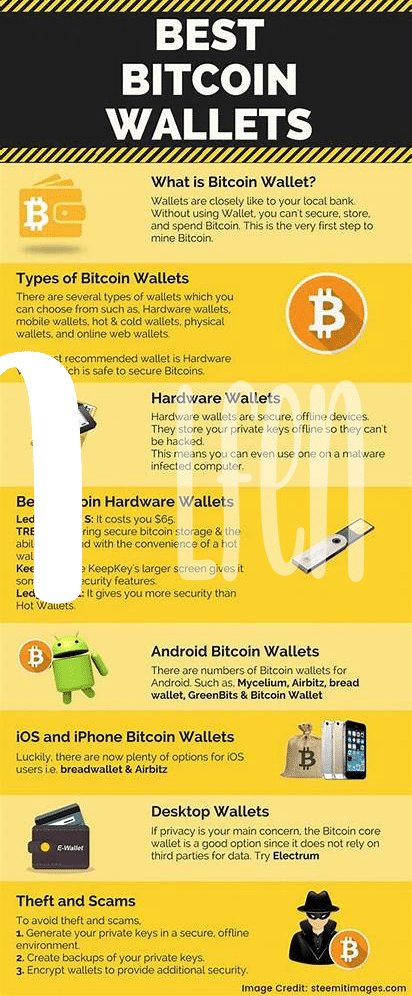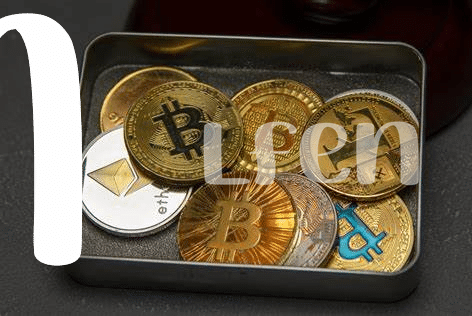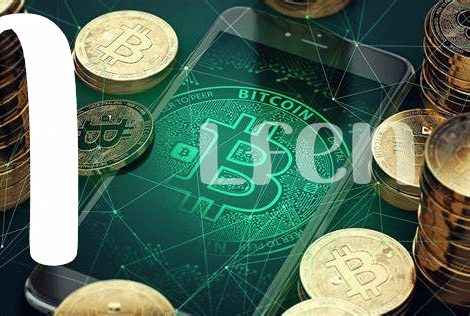🌐 Diving into Hardware Wallets: the Physical Keepers

Imagine having a small, sturdy box where you can tuck away your digital gold, far from the grabby hands of online thieves. That’s what hardware wallets offer – a physical cocoon for your Bitcoin, shaped like a USB stick or a smart card. Unlike the airy world of the internet, these gadgets let you sleep easy, knowing your digital riches are under lock and key, quite literally. They’re like tiny vaults, traveling in your pocket, with a solid promise: your virtual coins stay offline, away from hackers and malware. You plug them into a computer or phone when you need to move your funds, making them less exposed to cyber-attacks. But, it’s not all roses and sunshine; setting them up requires a bit more elbow grease compared to their virtual counterparts. Their price tag also warrants a second glance, as they’re an investment in your peace of mind. Below, a quick glance at what you might consider when choosing a hardware wallet:
| Feature | Consideration |
|---|---|
| Security | Highest, as they store keys offline |
| Cost | Higher initial purchase, but no ongoing fees |
| Convenience | Requires physical interaction for transactions |
| Recovery | Recovery phrases enable asset recovery |
Each of these gadgets is a testament to the incredible journey of digital currency, a blend of innovation and practicality, serving as a fortress for your digital wealth.
💻 Exploring Software Wallets: Virtual Money Safes
Imagine having a wallet that you can’t touch but it’s always with you—welcome to the world of software bitcoin wallets. Just like the apps you love, these wallets live on your phone, computer, or online. They’re like invisible vaults, keeping your digital money safe. Swipe open your phone, click on your computer, and there’s your digital treasure, available anytime, anywhere. It’s like having a magic money door that only you have the key to open.
But what about keeping that key safe? Well, some smart folks have been working on making that part easier and safer than ever. For more on jazzing up your wallet security, check out an interesting read: https://wikicrypto.news/beyond-speculation-fundamental-factors-driving-bitcoins-2024-volatility. This way, you not only carry your digital coins in your pocket but also ensure peace of mind, knowing that your assets have an extra layer of protection against the bad guys. It’s all about balancing convenience with security, making software wallets a go-to for many in the digital age.
🔐 Security Showdown: Comparing Locks and Keys

When thinking about keeping our digital money safe, we often compare hardware wallets, like a secure lockbox, to software wallets, which act like invisible, virtual vaults. Hardware wallets are physical devices that store your digital cash offline, making it tough for hackers to sneak in and swipe your funds without the actual device in their hands. Think of it like having a personal safe, but for digital money. On the flip side, software wallets live on your computer or phone, always ready at your fingertips. They protect your assets with complex passwords and encryptions, kind of like a secret handshake that only you and your wallet know.
However, it’s not all about being hard to get into. What happens if someone actually manages to crack the code? Hardware wallets have a strong suit here because, without physical access, a thief’s efforts are pretty much futile. It’s as if your digital money is locked in a safe, buried in a secret location; without the map (in this case, the hardware wallet), the treasure stays hidden. Software wallets, while incredibly secure with layers of digital locks, face the constant battle against viruses and phishing attacks that can sneak through your digital door when you least expect it. It’s like having a high-tech security system for your house, but still needing to watch out for sneaky burglars finding loopholes.
🚀 Convenience in Access: On-the-go Vs. At-home

Choosing between a hardware and a software wallet often comes down to how you prefer accessing your digital money. Imagine having a safe in your house (hardware wallet) versus an app on your phone (software wallet). The former feels secure, sitting snug at home, but it isn’t much help when you’re out wanting to make a quick transaction. That’s where software wallets shine, allowing you to trade or check your balance from anywhere, just like checking a message on your phone. However, there’s a certain peace of mind in knowing your digital coins are safely stored in a physical device at home, less exposed to the online wilds. Making sure you’re making the right choice in safeguarding your digital assets, it might be wise to visit best practices for securing your bitcoin against theft in 2024, offering insight into the latest strategies to keep your investments secure, whether you’re a fan of carrying your wallet in your pocket or prefer it sitting on your desk.
💸 Fee Face-off: Evaluating Transaction Costs
When it comes to handling Bitcoin, whether you’re saving for a rainy day or making frequent transactions, understanding how fees stack up between hardware and software wallets is essential. Imagine going to a vending machine (hardware wallet) versus ordering delivery (software wallet); both get you what you want, but the costs and conveniences differ. Hardware wallets might seem like a one-time purchase, but consider the small fees for transferring your digital coins back online for use. Software wallets, on the other hand, whisper sweet nothings of ‘no upfront cost,’ yet they gently nibble away at your funds with transaction fees each time you send or receive Bitcoin. To make it clear, let’s lay it out:
| Wallet Type | Transaction Fees | Upfront Costs |
|---|---|---|
| Hardware Wallets | Generally lower | Yes (One-time) |
| Software Wallets | Varies (can be higher) | No |
This glance at costs doesn’t just help in managing your Bitcoin better but ensures you’re not caught off guard when you decide to move your digital treasures.
♻️ Recovery Options: Getting Your Assets Back

When it comes to safeguarding your digital treasures, knowing how to reclaim them if things go south is just as crucial as the initial security. Imagine locking your most prized possessions in a vault so secure even you can’t re-enter without the right process in place. Both hardware and software wallets offer means to recover your assets, but the journey differs. Hardware wallets, akin to holding a physical key to a safety deposit box, generally use a recovery seed—a series of words generated at setup. If the device is lost or breaks, these words can revive your wallet’s contents on a new device. Software wallets, dwelling in the digital realm, often rely on backup files or similar seed phrases but accessible via online means, which poses unique challenges and conveniences. The blend of security and practicality in recovery methods underscores a significant aspect of cryptocurrency management. For those embarking on this digital odyssey, understanding the intricacies of recovery options can be a lifeline in turbulent waters. To deepen your knowledge on how these fluctuations impact your digital assets, consider exploring analyzing bitcoin price volatility and its causes in 2024, which offers insights into the broader ecosystem your wallet exists within.
